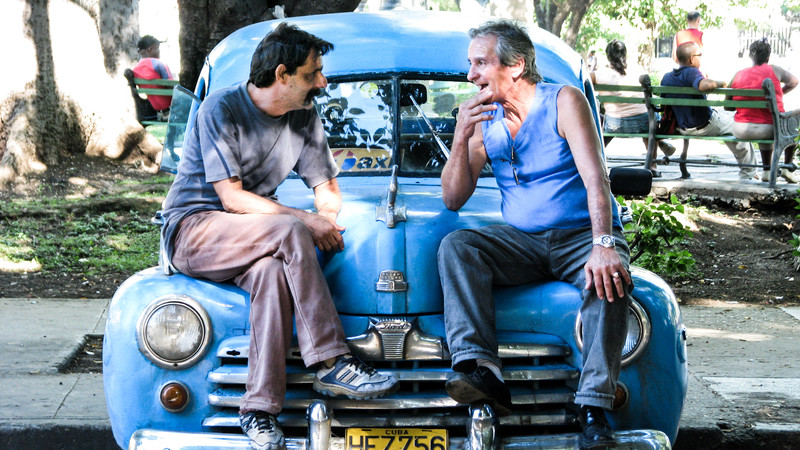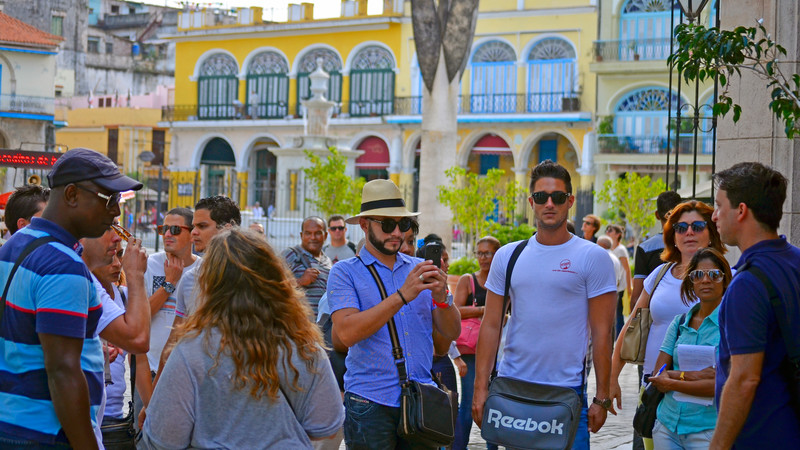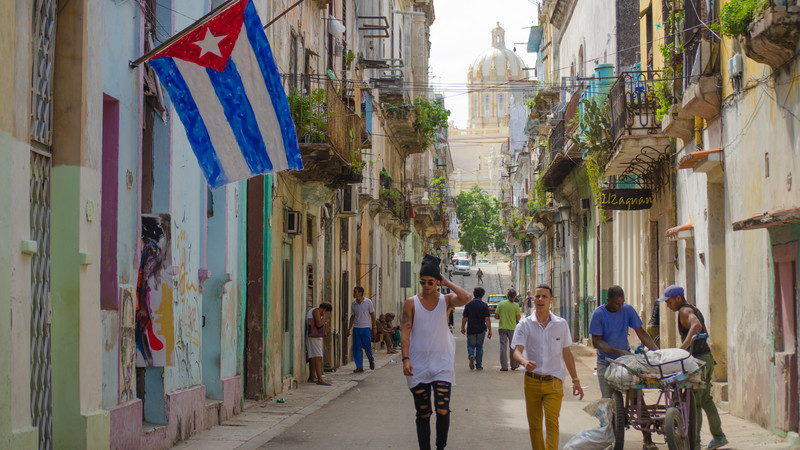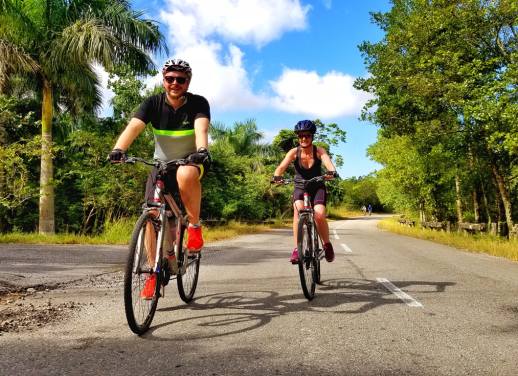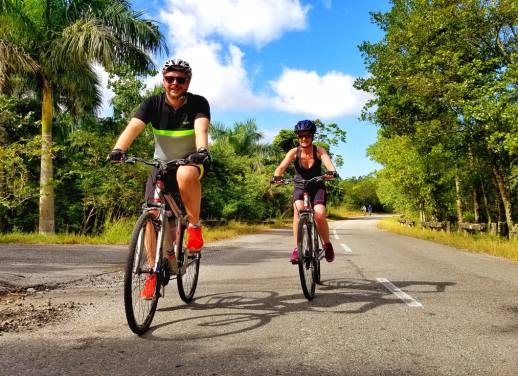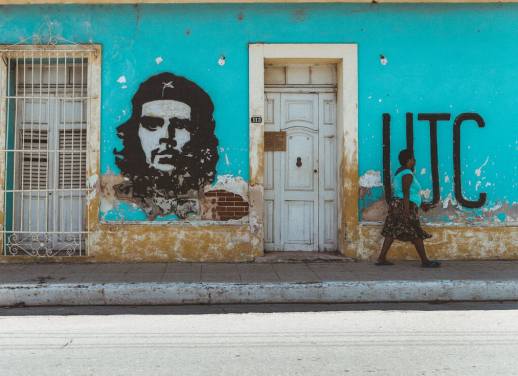“Chicas, hola!” a voice called out to us from across the street. We all paused and rolled our eyes.
We’d been complimented or waved down more times than hours we’d been in the country and it was getting a little predictable. I’d met friendly locals in many countries, but Cubans were something else.
“My girlfriend lives next door to your casa, I saw you arrive earlier. ¿Como Estas?”
“Bien, gracias,” my friend replied with a cursory smile. We started walking away when he smoothly stepped back in front of us.
“Perdón, but where are you going? Can I help?”
Thirty minutes later, we were walking out of his friend’s house, arms full with boxes of Cuban cigars. We didn’t know it yet, but we had just fallen victim to one of the most common scams in Havana.
As someone who is well-travelled, I don’t consider myself naïve and certainly not one to be sucked into a con, but Cuba presented a new set of challenges. Strange situations can lead to unexpected adventures, so when I travel, I try to keep an open mind while maintaining a reasonable level of scepticism. And with so much misinformation circling around the Caribbean country, I was determined to see past the stereotypes and seek out authenticity. The problem? Cuba blurred the lines between ‘outgoing local’ and ‘professional hustler’ so frequently, I was constantly questioning whether I was being helped or taken advantage of.
READ MORE: WHAT IT’S LIKE ON A CUBA TOUR (FROM SOMEONE WHO’D ONLY BEEN TO ALL-INCLUSIVES THERE)
To most Cubans, tricking tourists out of a few dollars is just a game; they don’t mean any harm or threat. If you say no gracias and smile, they’re more likely to engage in friendly banter than to become aggressive. And when you consider the meagre government rations most live off, their mischievous ways are understandable.
To avoid Havana bad time in Cuba, look out for these common swindles (or check with your local leader to make sure you’re not being taken for a ride!).
1. Fake Cuban Cigars
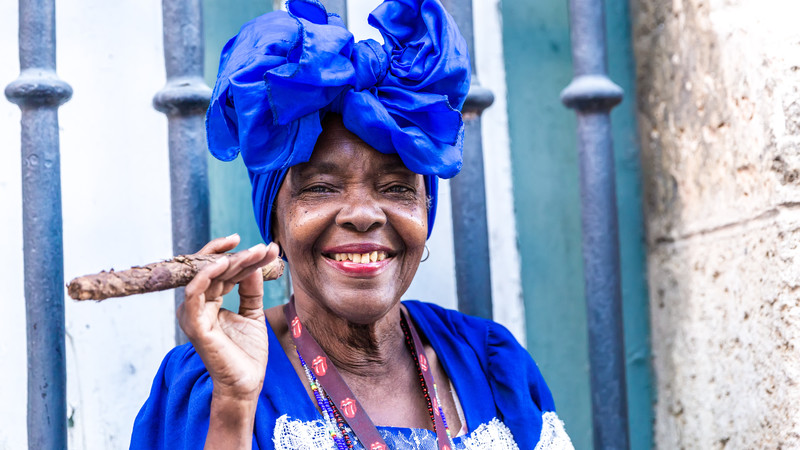
Okay… that one looks real. Image via Shutterstock, by ESB Professional.
The scam? Selling stolen, dodgy or entirely fake Cuban cigars to unsuspecting tourists.
The ploy? An elaborate backstory explaining how they acquired the cigars. I’ve heard variations from ‘we’re given two boxes a month by the factory’ to ‘the Castro government allows us to sell cigars from our houses once a month, at a quarter of the retail price.’
Even if you would never normally smoke, many tourists will try a cigar or two as part of their Cuban cultural experience. My friends and I were sucked in by the second ploy I mentioned, so I’m sure you’re judging us right now. How could we have fallen for such an obvious con? Well, if we had any doubt of the legitimacy of the story when we first heard it, we certainly didn’t after seeing the cigars in proper boxes with holographic seals. Everything looked legitimate to our inexperienced eyes, but after returning home and doing some research, I learned that the entire cigar trade in Cuba is government-owned-and-regulated. If someone is offering cigars at a quarter of the market price, politely decline and head to one of many authorised stores or factories across the country.
The cigars my friends purchased are likely to be:
- Made entirely of banana leaves with zero tobacco
- Stolen from the factory
- Created with stolen tobacco scraps
READY TO PUT THESE TIPS TO ACTION? BOOK A SMALL GROUP TOUR TO CUBA WITH INTREPID TODAY.
2. iNo tengo cambio!
The scam? A person claims not to have any change for the tourist
The ploy? An explanation of how they only have local currency (CUP) but no convertible pesos (currency used by tourists). The tourist feels they have no option but to overpay for the goods or service.
This is an easy scam to operate and indeed to fall for. When a Cuban showed me his wallet after a taxi ride and explained he only had local currency but no change for my convertible pesos, I felt no choice but to hand over the money I had. He even appeared to ask another taxi driver if he had change, to which he also miraculously didn’t. These drivers make a living taking tourists to and from the airport, so the chances of neither of them having a single convertible peso is slim to none.
In the back of mind, I knew I was being scammed for the extra 10 dollars, but my Spanish wasn’t strong enough to argue. So, I handed over the cash and accepted defeat. Moral of the story? Carry small notes only.
3. Wifi Card Pricing
The scam? Overcharging tourists who don’t speak Spanish for Wi-Fi cards
The ploy? Simply asking for more money if the tourist doesn’t speak Spanish
The first time I purchased a Wi-Fi card in Viñales, I was scammed. I spoke enough Spanish to make the transaction in the local language, but feeling a little shy I opted to speak English to the attendant and I ended up paying for it. Literally. When I left the store, I discovered my friend was charged half the price I did and, surprise surprise, spoke Spanish to the attendant. Needless to say, I didn’t make that mistake again.
RELATED: 10 SCAMS IN ROME AND HOW TO AVOID THEM
4. Incorrect Change
The scam? Giving change back to customers in the local currency (CUP) instead of the convertible currency (CUC) tourists typically use. 1 CUC is equal to 1 US Dollar.
The ploy? When a customer pays for a good or service in CUC, they are given change back in CUP, which is worth considerably less.
Thankfully, the one time this happened to me I recognised the bills and coins were different to what I had in my wallet. I mentioned it to the mesera at the restaurant I had just dined at and she immediately apologised, fetching the correct change with an embarrassed flush on her cheeks. I laughed it off in good faith, but I’m sure it wasn’t an accident.
SUBSCRIBE TO INTREPID NEWSLETTER FOR TRAVEL TIPS, COMPETITIONS, GIVEAWAYS AND MORE
5. What a coincidence! It’s the (national day/anniversary) of..
The scam? Tell unsuspecting visitors that they arrived just in time for the ‘national day’ or ‘anniversary’ of something, such as cigars or salsa. They will then try to sell them overpriced tickets to an event or lead them to a bar where they receive commission from the owner.
The ploy? Tell tourists an elaborate story related to the con and make them feel like they cannot miss the experience being offered.
The adage ‘if it sounds too good to be true, it probably is,’ is an accurate summation of Cuba. Locals are so friendly and engaging it’s hard to resist their charms of persuasion.
The same man who led us to the questionable cigars told us it was the 50th anniversary of the famous Buena Vista Social Club and that we absolutely needed to buy tickets to the event that night. Swept up in the excitement of landing in the home of salsa, we happily handed over money for tickets to the show. Luckily for us, there was a salsa event on that night and we even got free mojitos, but the likelihood of world-famous Cuban dancers performing was basically zero. Other tourists haven’t been so lucky. I’ve read many stories online about people being dragged to empty bars and charged exorbitant prices for drinks, without a salsa dancer in sight.
A true Cuban experience is packed full of rum, salsa and rich cultural experiences, but as with every budding tourist destination, there are a few traps to watch out for. So long as you stay alert and look out for the common tricks, you’re guaranteed to have an incredible time!
Do you want to experience the charms of Cuba? Check out our range of small-group tours.
Hero Image by Adam Nyeholt

